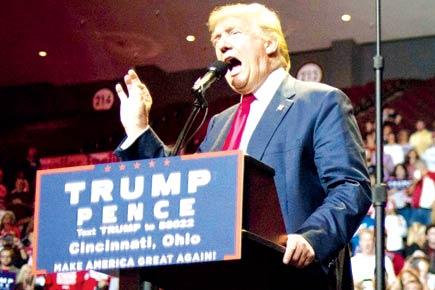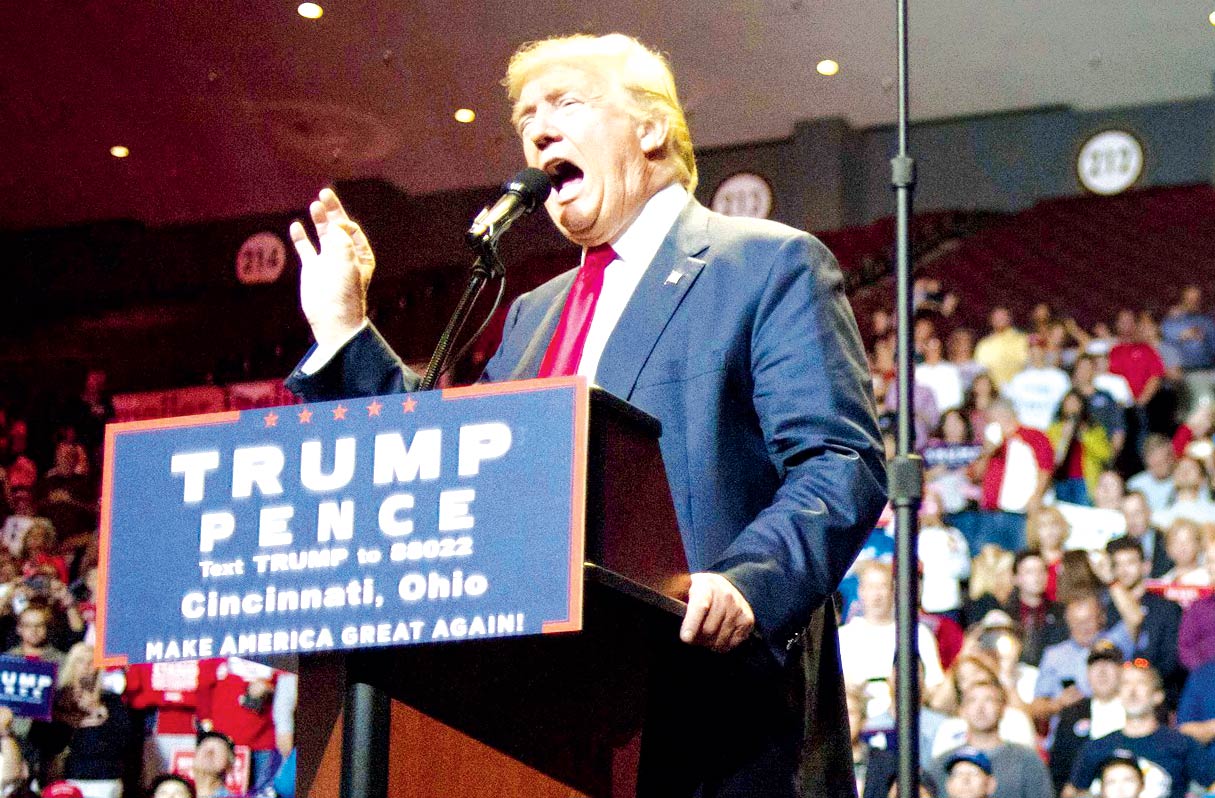Republican presidential nominee brings H-1B visa and outsourcing of work to other nations back in a desperate bid to revive his faltering poll campaigns

Donald Trump speaks to a crowd of attendees at US Bank Arena on in Cincinnati, Ohio. Pic/AFP

Donald Trump speaks to a crowd of attendees at US Bank Arena on in Cincinnati, Ohio. Pic/AFP
ADVERTISEMENT
Washington: Injecting H-1B and outsourcing as an election campaign issue again, Republican presidential nominee Donald Trump has alleged that companies are importing low-wage workers on work visas, and pledged to protect jobs for Americans.
"Many mothers across this country are worried their kids won't find jobs, and they are right to be worried. One of the biggest threats is outsourcing jobs for college-educated kids are being sent to other countries," the 70-year-old reality TV star told cheering supporters in Cincinnati, Ohio.
"At the same time, companies are importing low-wage workers on H-1B visas to take jobs from young college-trained Americans. We will protect these jobs for Americans."
H-1B work visas are the most sought after for IT professionals, particularly those from India.
While H-1B and outsourcing had become one of his frequent campaign issue during the Republican primary season early this spring and summer, it more or less remained absent from his key election issue till the election rally in Ohio ahead of the November 8 polls.
According to a recent policy paper on immigration, Trump's vision is to prioritise the jobs, wages and security of Americans and establish new immigration controls to boost wages and ensure that open jobs are offered to American workers first.
Trump added that his administration will "have to make sure that those who have graduated college and those who are soon to graduate can find a good job to start a good career when they do".
He said his economic plan, including tax, trade regulatory, and energy reforms, will create 25 million new jobs and allow the private sector to grow at four per cent per year.
"This includes reforms to protect and expand the sharing economy — startups like Uber — that have managed to provide great services to consumers, and create lots of jobs in the process," he added.
 Subscribe today by clicking the link and stay updated with the latest news!" Click here!
Subscribe today by clicking the link and stay updated with the latest news!" Click here!







